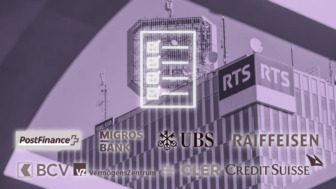
What You Need to Know before Opening an Account in a Swiss Private Bank
Private banks involve a higher level of service, but also less familiar mechanisms. Not all institutions operate in the same way, and some grey areas remain. This article is part of a series dedicated to private banking, along with the 2025 guide to Swiss private banking, to better understand the sector’s actual practices.
Here are 5 essential points to check to avoid unpleasant surprises:
1. Fees that Add up Quickly: up to 2-3% per Year
Private banks often advertise a 1% mandate. But this percentage only covers part of the actual cost. You need to add:
- custody fees (sometimes indexed to asset classes)
- fees integrated into in-house products
- performance fees
- outgoing transfer or closure fees
The Swiss Price Supervisor notes a clear upward trend. Some banks charge up to 200 CHF per transferred line, an amount unrelated to the actual cost of the service.
At UBS, fees of 5,000 dollars can be applied to clients with more than 2 million USD if they delay investing.
2. Retrocessions: not Always Well Regulated
Retrocessions are commissions received by the bank when it places certain products. In Switzerland, these amounts must be returned to the client, unless the client waives this right in a documented manner.
In practice, waiver clauses are often general, signed without mentioning expected amounts or calculation methods. The Federal Court reminded in 2024 that a waiver is only valid if the client is informed of both the calculation parameters and the foreseeable order of magnitude.
It is therefore necessary to demand an estimate of expected retrocessions, product by product, as well as complete documentation, before any signing.
Some Swiss banks take the opposite approach by clearly documenting retrocession flows and automatically refunding them without a waiver clause to sign. This level of transparency remains rare, but it shows that more transparent models exist.
3. FINMA Violations: Cases that also Affect Private Banks
- Mirabaud & Cie SA was sanctioned in September 2024. FINMA confiscated 12.7 million CHF and prohibited the bank from accepting new high-risk clients.
- HSBC Private Bank (Switzerland) SA was penalized for not sufficiently verifying more than 300 million USD in transactions related to politically exposed persons between 2002 and 2015.
- FlowBank SA lost its banking license on June 13, 2024, due to insufficient capital and serious shortcomings in meeting authorization conditions.
Before opening an account, it’s better to consult FINMA’s news and question the bank about its compliance.
4. Open Architecture: more in Theory than in Practice
Swiss private banks claim an open architecture, and it’s an advantage. But in reality, in-house products can dominate portfolios. This is an aspect to verify.
These products generate higher margins, are better known internally, and are sometimes favored by recommendation tools. This doesn’t mean they are of poor quality, but their actual weight is rarely transparent.
One can ask for the exact share of internal products over the last twelve months as well as the criteria applied to select third-party solutions. This also helps understand how the type of mandate influences the selection of proposed products.
5. Very Stable Monitoring, but to be Framed Well from the Start
Clear advantage: Swiss private banking stands out for the stability of its teams. On average, an advisor stays there for more than 15 years, a point that few institutions can claim.
This continuity is a real asset, but it deserves to “be clarified from the beginning of the relationship. Who makes up the” team? What are the exact responsibilities of each person? What happens in case of a change?
A personalized relationship is only effective if it is based on a clear structure, capable of ensuring consistent support over the long term.
Conclusion on how to Properly Evaluate a Private Bank
Private banks offer a demanding and structured framework for wealth management. However, this framework is based on contractual and operational practices that need to be well understood. Asking the right questions from the start helps to clarify the relationship, avoid misunderstandings, and reinforce the advantages one came to seek.
🧠 To learn more, read the guide to Swiss private banking in 2025.





